April 3
Mathilde Franziska Giesler Anneke
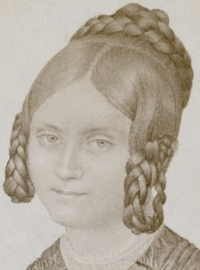
On this date in 1817, Mathilde Franziska Giesler Anneke was born in Westphalia. The first of 12 children, Mathilde was raised a devout Catholic. After she fought to annul an early, unhappy marriage, Mathilde married Prussian artillery officer Fritz Anneke in 1847. When he was imprisoned, she published a censored revolutionary journal and became a radical freethinker.
The couple fled after the failed German revolutions of 1848 and 1849, settling briefly in Milwaukee, where Mathilde launched a radical German-language freethinker’s journal dedicated to women’s emancipation. She continued publishing from New Jersey. Eventually she returned to Milwaukee, where she protested alcohol, clericalism and nativism, also co-founding a suffrage group in 1869 and a highly regarded German-language girls school. (D.1884)
“Reason, which we recognize as our highest and only law-giver, commands us to be free.”
— Anneke speech, 1869 Equal Rights Association convention, "History of Woman Suffrage Vol. III" (1886)
John Burroughs
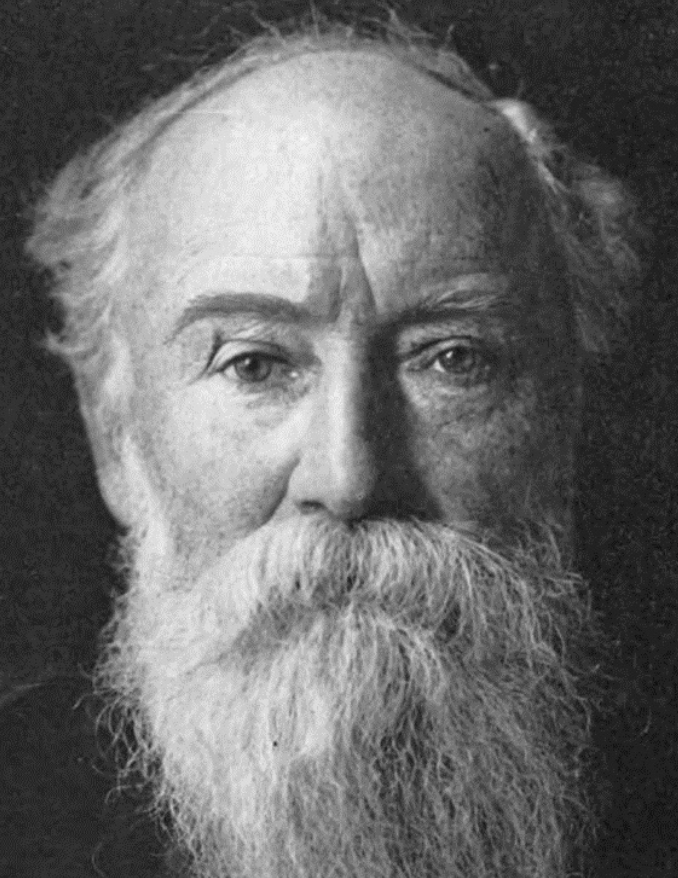
On this date in 1837, naturalist John Burroughs was born on a farm in the Catskills of New York state. After teaching and clerking in government, Burroughs returned to the Catskills and devoted his life to writing and gardening. He knew Thomas Edison, Henry Ford, Theodore Roosevelt, John Muir and Walt Whitman, writing the first biography of Whitman. Most of his 22 books are collected essays on nature and philosophy.
In his book “The Light of Day“ (1900), he illuminated his views on religion: “If we take science as our sole guide, if we accept and hold fast that alone which is verifiable, the old theology must go.” “When I look up at the starry heavens at night and reflect upon what is it that I really see there, I am constrained to say, ‘There is no God.’ “
In his journal dated Feb. 18, 1910, he wrote: “Joy in the universe, and keen curiosity about it all — that has been my religion.” He died on his 83rd birthday. The John Burroughs Sanctuary can be found near West Park, N.Y., and his rustic cabin Slabsides has been preserved. (D. 1921)
"The deeper our insight into the methods of nature … the more incredible the popular Christianity seems to us."
— Burroughs, "The Light of Day" (1900)
Marlon Brando
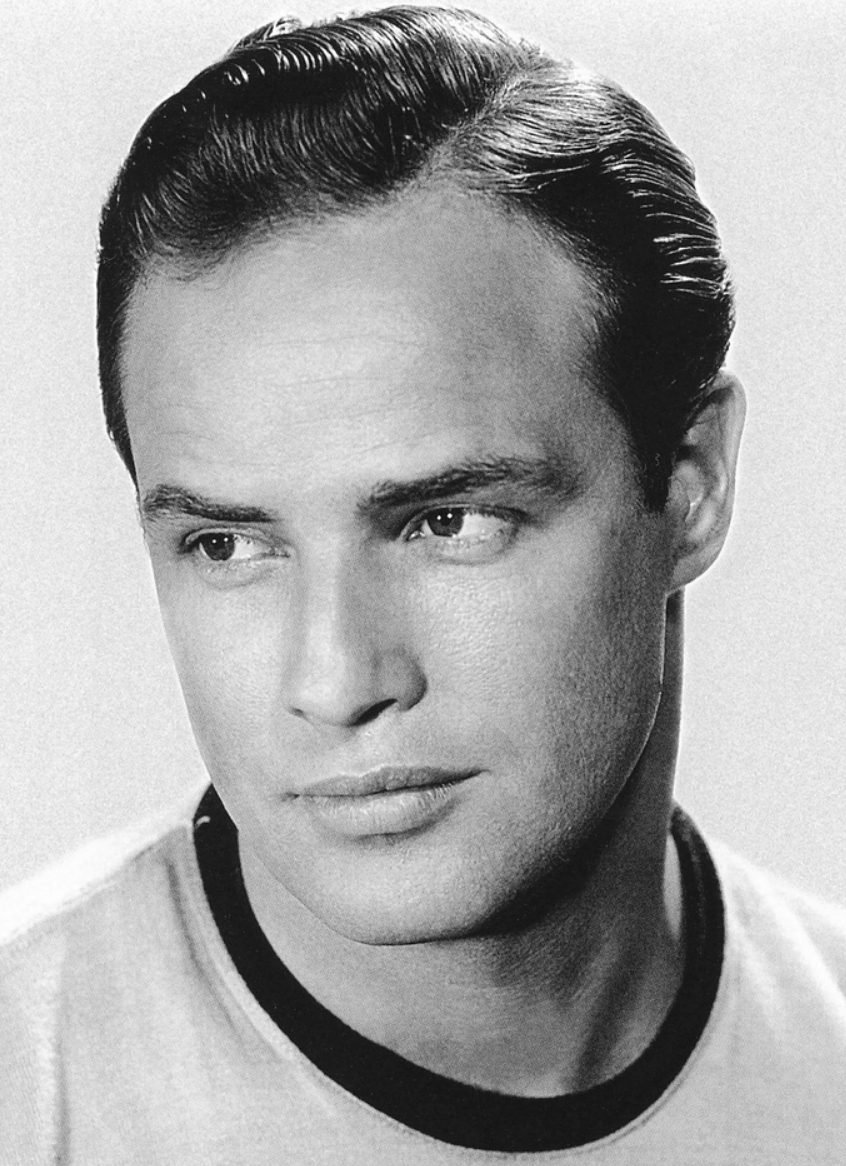
On this date in 1924, actor Marlon Brando Jr. was born in Omaha, Neb., to Dorothy (Pennebaker) and Marlon Brando. When he was 11 his parents separated (both had alcohol problems), and he lived for a time with his Christian Scientist grandmother and became interested in Christian Science. His mother’s theater background — she worked with young Henry Fonda and others — piqued his interest in acting. After dropping out of high school, he moved to New York City in 1943 and studied with Stella Adler and Elia Kazan at the Actors Studio to learn Stanislavski “method” acting techniques.
His Broadway debut was in “I Remember Mama” (1944). His movie debut was as a paraplegic in “The Men” (1950). Reprising his memorable depiction on Broadway of Stanley in “A Streetcar Named Desire” for the 1951 film of the same name, Brando, became an overnight sensation.
His other memorable films include “Julius Caesar” (1953), “On the Waterfront” (1954, for which he won his first Best Actor Oscar), “Guys and Dolls” (1955), “The Teahouse of the August Moon” (1956), “Mutiny on the Bounty” (1962), “The Ugly American” (1963), “Reflections in a Golden Eye” (1967), “The Godfather” (1972, for which he won but declined his second Oscar), “Last Tango in Paris” (1972) and “Apocalypse Now” (1979).
Brando was married three times to actresses: Anna Kashfi (1957-59), Movita Castaneda (1960-62) and Tarita Teriipaia (1962-72). Teriipaia, 18 years his junior, played his love interest in “Mutiny on the Bounty.” He had 11 children, including three with his housekeeper Maria Cristina Ruiz during their relationship from 1988 to 2001.
His son Christian (with Kashfi) was found guilty of voluntary manslaughter and was sentenced to 10 years for the 1990 shooting death of Dag Drollet, the boyfriend of Brando’s daughter Cheyenne (Christian’s half-sister). Cheyenne, who had drug addictions, committed suicide at age 25. Brando was known for eccentricities and promotion of liberal causes. He died at age 80 in 2004.
As an adult, Brando was never active in any religious denomination but was interested in spirituality, metaphysics and nontraditional belief systems such as Native American and Eastern religions, including meditation. He also expressed admiration for Judaism. He has been described as a pantheist and an atheist, although the atheist claim is dubious. In his autobiography he referred to his “inexaustible awe and reverence for nature.” (D. 2004)
PHOTO: Brando during filming of “The Wild One” in 1953; photo under Wikimedia Commons.
“When I was young, I embraced the Judeo-Christian concept of good and evil, and its corollary, that all of us were responsible for our deeds because of the choices we made. I don’t believe this anymore.”
— "Songs My Mother Taught Me" by Marlon Brando with Robert Lindsey (1994)
Rachel Bloom
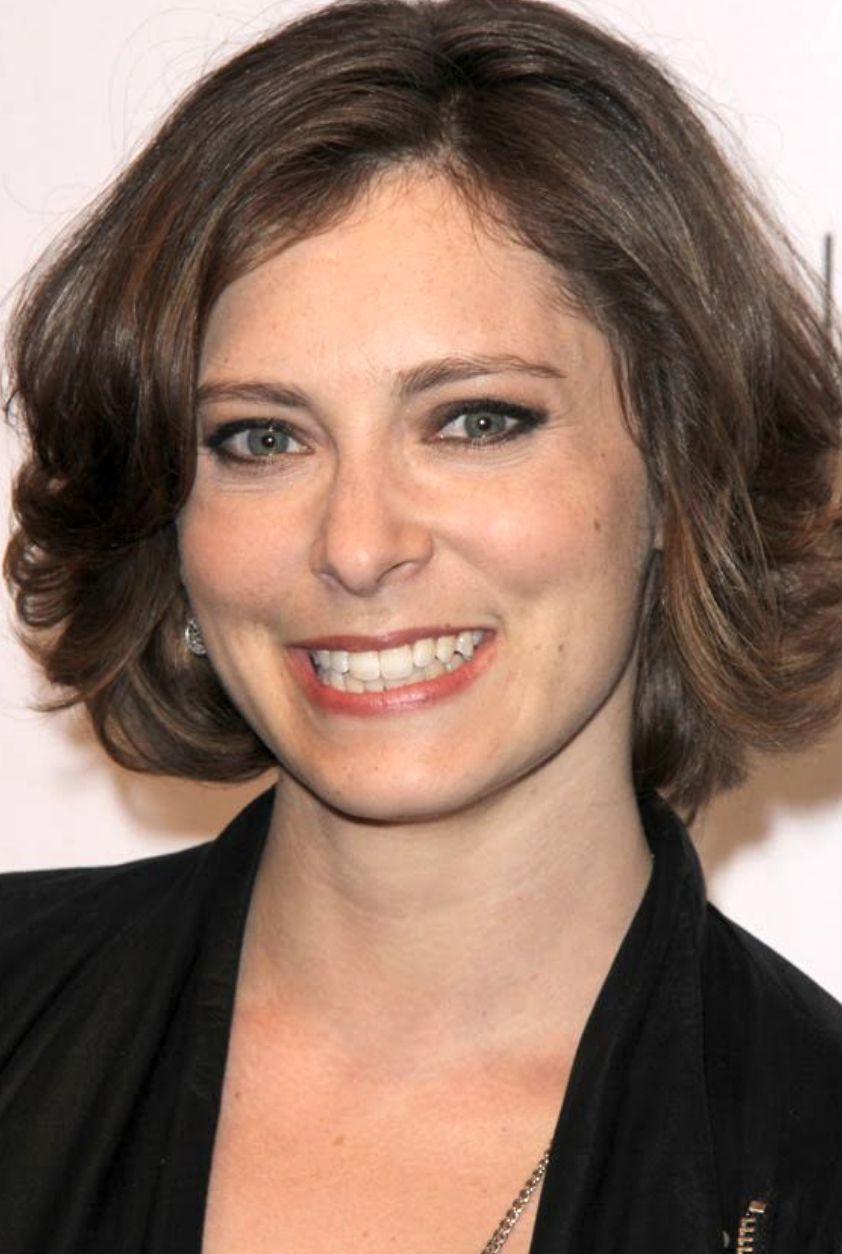
On this date in 1987, entertainer Rachel Leah Bloom, was born in Los Angeles to Shelli (Rosenberg), a musician, and Alan Bloom, an attorney. She was raised in Manhattan Beach with what she called a “heavy” Jewish identity. While the Blooms weren’t observant, her parents were “always going to Holocaust museums” and were “all up on who’s Jewish in Hollywood.” (Tablet online, July 8, 2014)
When she was 10, she dropped out of Hebrew School because it conflicted with her interest in taking theater classes. She engaged in her passion for theater throughout her childhood and attended New York University’s Tisch School of the Arts, where she received a BFA in 2009.
Bloom is best known for her co-creation of “Crazy Ex-Girlfriend” (2015-19), in which she had the starring role. The dark-humored television series is centered around the life of a young woman suffering from anxiety and depression while searching for happiness. Bloom’s empathy with those who, like her, struggle with mental illness, motivates her work as an activist for improved quality and availability of mental health care for all who need it.
She is also a proponent of women’s rights and issues, believing that feminism and humanism are inseparable allies. She lives in Los Angeles with her husband, Dan Gregor, whom she married in 2015. They have a daughter, born in 2020.
PHOTO: Bloom at PaleyFest 2015 in Beverly Hills, Calif.; photo by Shutterstock.com/Kathy Hutchins
"[When] the Constitution established a separation of church and state. That's so important, because if you look at almost any religion, especially the major three, there is an oppression of women. I feel very lucky to be in a country with a more secular mindset."
— Bloom, Newsweek interview (Jan. 25, 2018)
A.C. Grayling
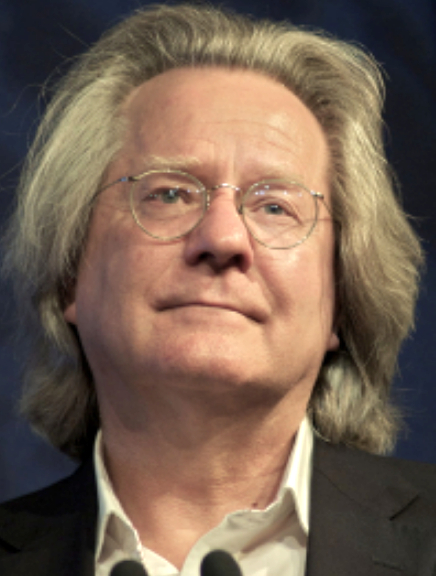
On this date in 1949, British author, philosopher and atheist Anthony Clifford Grayling was born in Northern Rhodesia (now Zambia), where his father was a banker. He spent his childhood in Africa. When he was 19, his older sister Jennifer was murdered in Johannesburg. When her parents went to identify the body, her mother had a fatal heart attack. After earning a B.A., M.A. and Ph.D. in England, Grayling lectured in philosophy at Bedford College-London and St. Anne’s College-Oxford before taking up a post in 1991 at Birkbeck College-University of London, where he was a philosophy professor until 2011. He then founded and became the first master of New College of the Humanities.
Grayling is the author of over 30 books on philosophy, biography, the history of ideas, human rights and ethics, including The Refutation of Scepticism (1985), The Future of Moral Values (1997), Wittgenstein (1992), What Is Good? (2000), The Meaning of Things (2001), The Good Book (2011), The God Argument (2013), The Age of Genius: The Seventeenth Century and the Birth of the Modern Mind (2016), War: An Enquiry (2017) and Democracy and its Crises (2017). His 2006 play “Grace” was co-written with Mick Gordon. The title character is a science professor who rejects religion.
He’s a vice president of the British Humanist Association, an honorary associate of the National Secular Society and has held positions with many other academic and literary organizations. The awards bestowed on him are numerous, including the Order of the British Empire, and others honoring his contributions to philosophy and ethics. One current biographical source says that Grayling believes that religion for historical reasons has had influence far out of proportion to the number of adherents and its intrinsic merits, “with the result that they can distort such matters as public policy (e.g., on abortion) and science research and education (e.g., stem cells, teaching of evolution).”
In a 2013 interview, freethinker Sam Harris asked Grayling if “a person can be both a humanist and a person of faith?” Grayling replied, “No, religion and humanism are not consistent — unless you mean ‘humanism’ in the Renaissance sense, where it denoted the study of classical literature. But this study soon showed people that the ideas and outlook of classical thought is at odds with religion, which is why humanism is now a secular philosophy.”
He and his wife, novelist Katie Hickman, have a daughter, Madeleine, and a stepson, Luke. He also has a son, Jolyon, and a daughter, Georgina, from his first marriage.
“In the study of history I became aware of the effects of religious divisions and sectarianism on individuals and societies, and came to think that freedom from religious influence is a human rights issue. I am an atheist, a secularist and a humanist.”
— Grayling, interviewed by Sam Harris, samharris.org (March 30, 2013)
